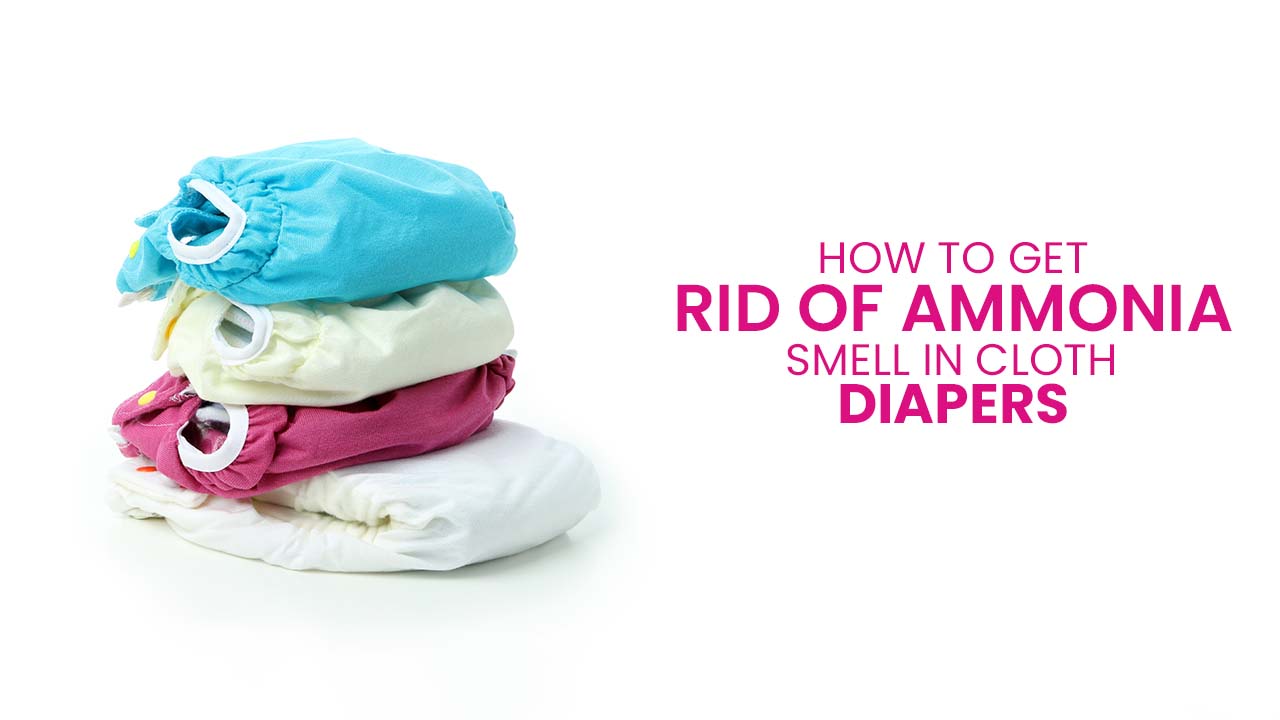
Cloth Diapers
Yes, poo and pee stink, but if your diapers smell so awful that you can’t stand being in the same room with them just hours after they’ve been soiled, something is wrong. Beginners may be surprised to learn that there are two types of odors that indicate a problem: barnyard stink and ammonia in Cloth Diapers.
So, what produces the stink of ammonia in cloth diapers? The short answer is that ammonia smell can be generated by one of three things: a washing fault (detergent buildup), warm and humid environments (low-ventilation storage), or something going on inside the body (including medical problems and just regular overnight wetting).
Besides being awful — ammonia not only stinks horrible, but it may also irritate your eyes if it’s strong enough — it can also produce catastrophic rashes in babies and be the first indicator of a massive issue, so paying enough attention is crucial.
What Causes Ammonia Smell?
As previously said, there are three major causes of ammonia smell in cloth diapers, but in the most basic sense, ammonia is produced when urea, one of the waste products found in urine (a consequence of protein breakdown), is further broken down to ammonia.
This breakdown can be accelerated by a number of factors, including:
- Bacteria: Bacteria levels that are greater than typical on your diapers due to factors like accumulation from a laundry failure or overheated and humid/ airtight/ long storage.
- Conditions that cause urine to be concentrated. Overnight diapers, particularly on older toddlers who drink less and sleep longer, or specific medical issues.
Now that you know why let’s take a look at each of the individual issues that could be creating your ammonia problem and how to fix them:
-
Laundry Failures (Detergent Buildup)
The detergent buildup is by far the most prevalent cause of ammonia smell that I’ve encountered in my years of assisting countless cloth diaper beginners on the Cloth Diapers for Beginners Facebook page. Detergent accumulation is prevalent, especially when utilizing generic wash routines (it’s one of the main reasons we created the process for creating personalized wash routines).
The problem begins when you either overfill your washer (“bulking” it up to the maximum weight capacity), use too many detergents for the quantity of water level utilized by your washing machine, or have water that is too soft to wash away suds.
While most soap marketed today works well in modern washing machines’ low-water environments, even the most refined detergent still requires enough water to circulate about and be cleaned away.
Diapers may appear tidy because the dense soil particles are rinsed away first, but a film of detergent and germs is left on the fabric’s surface if there isn’t enough water. If there is still inadequate liquid or detergent used the following time the diapers are washed, a new layer is deposited on top of the previous one, trapping bacteria.
Excess detergents and microorganisms are left on the diaper with each wash. The buildup gets heavier and heavier, and the odor gets stronger and stronger. If left untreated, rashes will develop quickly, and leakage may occur.
To put it another way, the detergent buildup is a major issue, and the first sign is an ammonia odor.
How to fix it?
In this article, we go into great detail on how to test for and remove detergent buildup, although testing for and removing detergent buildup from cloth diapers is actually rather simple. You can find out if you have it by performing a “swoosh test.” This entails rinsing and “swooshing” a clean diaper in a bowl of water to examine if any suds emerge.
If you observe suds, you have a detergent accumulation problem, and you may go to the detergent buildup article here for all the information you need to get rid of it.
-
Hot and Humid Environments (Low-Ventilation Storage)
Another reason for the ammonia smell is soiled diapers paired with a lot of heat or humidity and time, as we said earlier.
After 24 hours, urine naturally turns to ammonia, but with appropriate airflow, your diapers shouldn’t smell like ammonia until you’re up close.
If your diapers, on the other hand, are stored in an airtight container or in a hot and humid environment where bacteria can thrive quickly, germs can accelerate the process while also allowing the scent to gather and grow.
How to Fix It?
The following questions may assist you in determining whether or not storage is a problem for you:
- How long do you keep your diapers in storage? No matter what storage container you use, it’s not a good idea to keep dirty diapers for more than 3-4 days because bacteria development can become an issue.
- Is there any ventilation in there? Even the maximum storage recommendation of 3-4 days is for airflow-only storage containers. If you have an opaque diaper storage container, holding them for 1-2 days may be adequate to permit bacteria to multiply quickly enough to speed up the generation of ammonia from uric acid.
- Are they kept in a very hot and humid environment, such as a living space? This can also be the origin of your ammonia issues if your diapers are stored in a temperature or environment where extreme heat encourages bacteria growth.
-
Changes in the Body
Coping with ammonia in cloth diapers can be stressful because it’s not always fixable with a simple modification in your wash regimen or storage. Ammonia smell might be a symptom of anything wrong inside the body.
That’s not to imply the cause is alarming; as I mentioned earlier, it’s frequently just a case of older babies using overnight diapers, which creates effects that result in concentrated pee.
Older babies will have nighttime diapers that are quite filled with concentrated urine since they are consuming less breast milk or formula and sleeping longer. These diapers will also be heated by being adjacent to the baby’s warm body all night. That’s why you’ll generally only smell ammonia in a baby’s nocturnal diapers, not in daytime diapers.
How to Fix It?
It could just be a matter of concentrated urine at night if your only concern with ammonia smell is at night and there is no evidence of detergent buildup and your storage satisfies all of the safeguards we discussed above.
Rinsing out nighttime diapers and diluting that pee may be the greatest solution for you to counteract that odor. If your infant isn’t used to drinking much at night, consider giving them some additional fluids before bed.
Some Medical Causes of Ammonia
There are a few more medical causes you should be aware of if your baby’s diapers smell like ammonia both during the day and at night, you don’t have detergent buildup, and your storage is well-ventilated. These are some of them:
- Dehydration
- Infections of the urinary tract
- Diet plan
- Ailments of the kidneys and liver
Cloth Diapers: 4 Ways to Get Rid of Ammonia Smell
You can use a variety of strategies to preserve cloth diapers ammonia-free. I’ll show you four different techniques to get rid of ammonia.
-
Diapers Soaked in Bleach
Bleach saturating your diapers is one approach to get rid of ammonia. This method entails soaking your dirty diapers in cold water and bleach for 30 to 45 minutes. To properly clean them, repeat the process with a usual hot wash.
The bleach soak should sterilize the diapers while also breaking down the ammonia. The ammonia that has been broken down is considerably easier to remove in the subsequent wash.
-
Making Use Of An Oxygen Cleaner
After the diapers have been bleached, another approach to eliminate ammonia is to wash them with an oxygen cleaner. The oxygen cleaner aids in the bleach removal from the diapers.
Keep your baby’s danger of burns to a minimum. This also aids in the removal of any ammonia that may have remained in the bleach.
-
Making Use Of An Enzyme Cleaner
Another technique to get rid of ammonia is to use an enzyme cleaning. An enzyme cleaner works by consuming the bacteria responsible for the ammonia odor.
All you have to do is spritz your diapers with an enzyme cleanser before washing them. Add these to your regular laundry routine. As a result, the foul odor should be gone.
-
Vinegar And Water Washing
Using vinegar and water to wash your cloth diapers has the same effect as soaking them in bleach. Because this approach employs less chemicals, it is better for both the cloth and your kid.
Let your diapers soak for an extended period of time in Vinegar and/or water. The ammonia will be broken down as a result of this. After that, carry on with your regular washing regimen. This will clean and prepare your diapers for use.
Summary
Nobody really wants to deal with cloth diapers that smell like ammonia, yet it happens more often than you may think. You’re not on your own, and we’ll be able to assist you.
These cloth diapers are difficult to use at first, but they are well worth the effort. So much good for the planet and far less expensive. In the long run, you will never lament wearing cloth nappies.


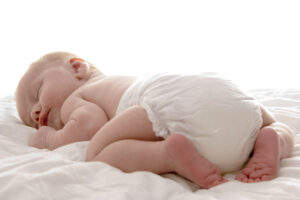
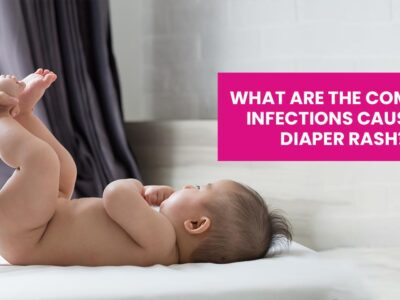
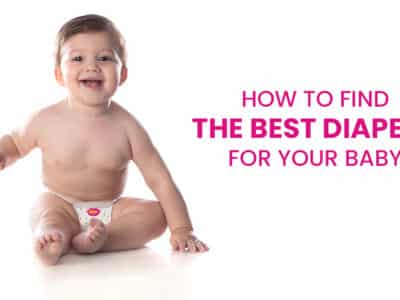

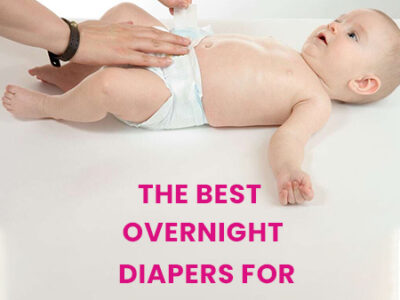

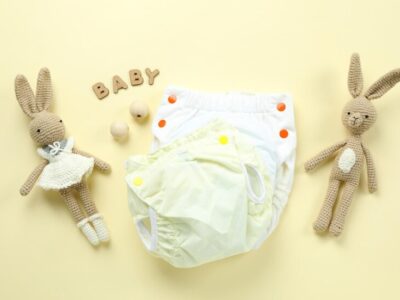


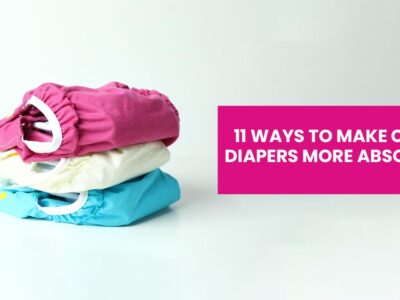
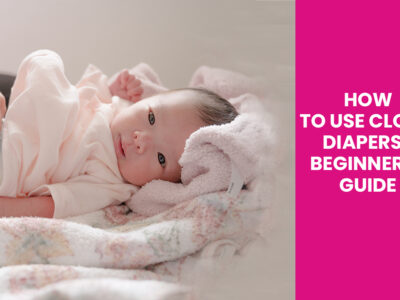
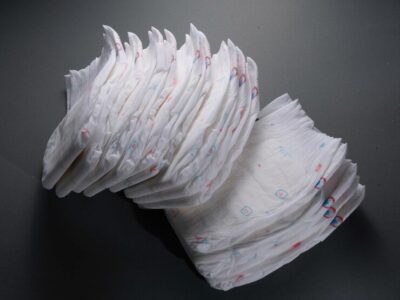


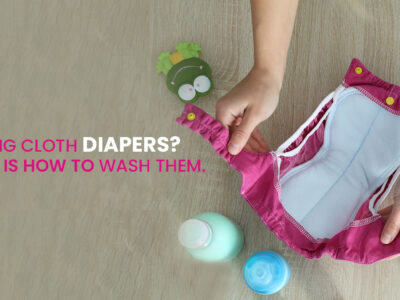
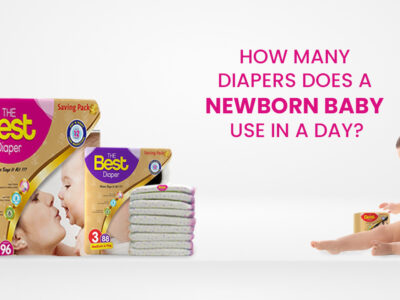

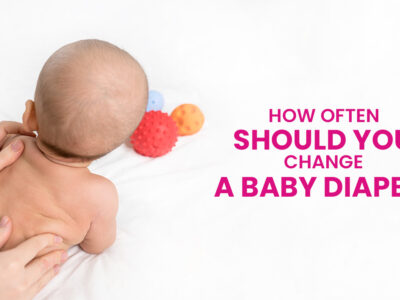
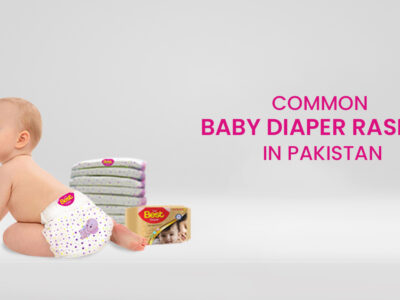
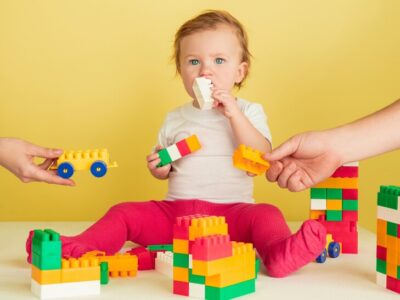
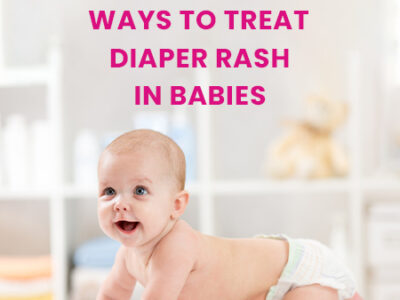


 Common Diaper Rash Problems And How To Manage Them
Common Diaper Rash Problems And How To Manage Them  Things You Need To Consider When Choosing Baby Diapers
Things You Need To Consider When Choosing Baby Diapers  12 Effective Ways To Treat Diaper Rash In Babies
12 Effective Ways To Treat Diaper Rash In Babies  Top 10 Baby Diaper Provider In Pakistan
Top 10 Baby Diaper Provider In Pakistan  The Best Overnight Diapers for Toddlers
The Best Overnight Diapers for Toddlers